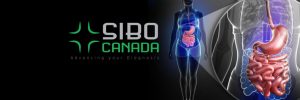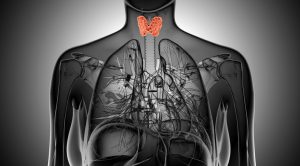March 2018 Newsletter
Upcoming Webinar
Thyroid Dysfunction: Uncover the Underlying Cause
Presented by: Dr. Melina Roberts
Tuesday, March 13th, 2018, 5:00pm MST
Description:
Dr. Melina Roberts, ND is going to deliver the best of what Functional Medicine has to offer for a healthy thyroid, with a Biological Medicine twist. You don’t want to miss this webinar!
Are the right nutrients getting into the thyroid cells? Is thyroid hormone conversion happening? How are the basal body temperature readings? Dr. Roberts will discuss the components and importance of a comprehensive thyroid evaluation, including clinical vs pathological thyroid dysfunction.
The connection and potential underlying causes in thyroid dysfunction will be reviewed, with a focus on the liver, adrenals, endocrine function, heavy metal toxicity and detoxification, infection, microbiome, and nutritional deficiency. Join Dr. Roberts to learn practical solutions and help uncover the underlying cause of thyroid dysfunction in your patients.
Practical discussion for:
- Myths about iodine
- Ideal temp range for thyroid function
- Key symptoms for thyroid dysfunction
- Which blood and iodine tests are best
- Protocols for heathy thyroid function
- How to measure Basal Body Temp (BBT) at home
- How to get necessary nutrients in the thyroid cells
- The connection between the adrenals and the thyroid
Welcome to our Team
We are please to welcome Dr. Shaun Riddle to our team! Dr. Riddle joins us with many years of experience in treating Chronic Infections including Lyme’s disease; Inflammatory Bowel Disease and musculoskeletal injuries with injection therapies.

About Dr. Shaun Riddle
Dr. Shaun Riddle completed his naturopathic medical training at Bastyr University in Seattle, WA. He has been practicing naturopathic medicine since 2004. While Dr. Riddle sees patients with a variety of chronic illnesses, he has a special interest in chronic infections and how they relate to autoimmune disease, digestive and neurologic disorders as well as chronic pain.
Initially, he began practicing with a focus on healing musculoskeletal injuries using a variety of injection therapies including prolotherapy, ozone and PRP (platelet rich plasma). Upon encountering patients with pain patterns that did not match typical injuries, he began investigating the possibility of chronic infections as a source of pain. For many, this explained their aberrant pain patterns and opened up a new approach to looking at autoimmune disease and neurologic disorders.
After working with chronic infections for some time, it has become clear that there are other factors that also need to be addressed in many people including: mold exposure, small intestinal bacterial overgrowth (SIBO), yeast/fungal overgrowth, parasitic infections, toxic metal accumulation & reactivity, environmental exposure, hormone insufficiencies, nutrient deficiencies and dental issues. Dr. Riddle utilizes lab testing to isolate the roadblocks that are specific to each patient.
Prior to naturopathic medicine, Dr. Riddle completed a master’s degree in teaching in addition to an undergraduate degree in biology.
Featured Article
Natural Solutions to Chronic Low Energy
DR. JATISH KALER

One of the most common concerns heard in a doctor’s office is of a patients struggle with fatigue. Whether playing with your children, making a home cooked meal or meeting the demands of a fast-paced career, suffering with chronic low energy can have a major impact on you leading an enjoyable, productive and fulfilling life.
Here are 5 of the most common reasons for experiencing fatigue:
- Low Vitamin B12
Low levels of vitamin B12 are one of the most common nutrient deficiencies associated with chronic low energy. Because vitamin B12 is only present in animal products, those who consume low levels of meat are at highest risk of deficiency. Poor digestion and absorption of nutrients and acid-blocking medications for heartburn also increase your risk of vitamin B12 deficiency.
In order to increase your vitamin B12 levels, you want to identify the cause of the deficiency, whether it is a low intake of foods such as liver, eggs, fish and nutritional yeast or whether it is in fact poor absorption of vitamin B12 in the intestines.
If you suffer from low energy and suspect you may be low in B12, it is important to analyze your blood levels of B12 and to talk to your doctor about what blood levels are optimal for you. To more quickly and effectively increase your B12 levels, a supplement in the form of a lozenge, a muscular injection or an intravenous infusion can be prescribed.
- Chronic stress
While the human body is designed to survive and thrive on short durations of challenge and stress, prolonged stress overwhelms our adaptive mechanisms. Chronic stress is linked to insomnia, fatigue and depression and finding healthy ways to manage stress is key to leading a disease-free life. Diet, exercise and socialization are all ways to combat stressful periods in time and herbs such as Rhodiola and Ginseng enhance our resiliency to stress and can play an important role in fighting fatigue associated with stress.
- Hormone imbalance
Whether it be monthly fluctuations in female hormones, the abrupt decline in estrogen and progesterone at menopause, changes in testosterone metabolism or an insufficiency of the thyroid gland, hormonal imbalance may play a role in your low energy and low mood. Getting your hormone levels tested and corrected ensures there is no underlying imbalance contributing to fatigue.
- Physical inactivity
A vicious cycle exists between low energy and low physical activity; you are inactive because you are tired and you are tired because you are inactive. When you feel your energy is at its lowest, sometimes the very best medicine is to expend more energy through physical exercise. Regular physical exercise stimulates your metabolism and releases feel good chemicals into the body.
- Poor Sleep Hygiene
If when you awake each morning you do not feel rested and refreshed, you may want to reassess your sleep hygiene and habits. Black out curtains, white noise machines, air humidifiers, a new mattress or pillow and a cooler bedroom temperature are just a few components of sleep that can have a major impact on your nighttime slumber and your daytime vitality. Don’t forget to stick to a regular sleep routine (even on the weekends) and avoid caffeine, alcohol and screen time prior to bed.
When dealing with chronic, unexplained low energy, remember to talk to a licensed healthcare professional to explore all of your treatment options. And always talk to your naturopathic doctor or other trusted healthcare professional when starting, stopping or changing prescription medications and natural supplements.
Featured Lab Service
Small Intestinal Bacterial Overgrowth (SIBO) Breath Test
BY: DR. SHAUN RIDDLE

Recent research shows that approximately 84% of people with irritable bowel syndrome (IBS) are positive for SIBO. The large intestine is where the body’s beneficial bacteria resides in a normal state. The small intestine should be relatively free of bacteria. When bacteria overgrow in the small intestine, it becomes a site of inflammation that can lead to digestive issues & food allergies in addition to many other symptoms. A more complete list can be found at the following link:
https://www.siboinfo.com/symptoms.html
To complete this test, you would drink a special sugar mixture that acts as food for these bacterial colonies. You take a breath sample every 20 minutes over a 3 hour period as this mixture moves through the small intestine. The bacteria can produce a mixture of hydrogen and methane gas as it feeds on the mixture. By sampling the amount of gas produced, we can determine whether there is a bacterial overgrowth present.
Featured Recipe
Simple Layered Nacho Dip
Contributed by Kaitlin


